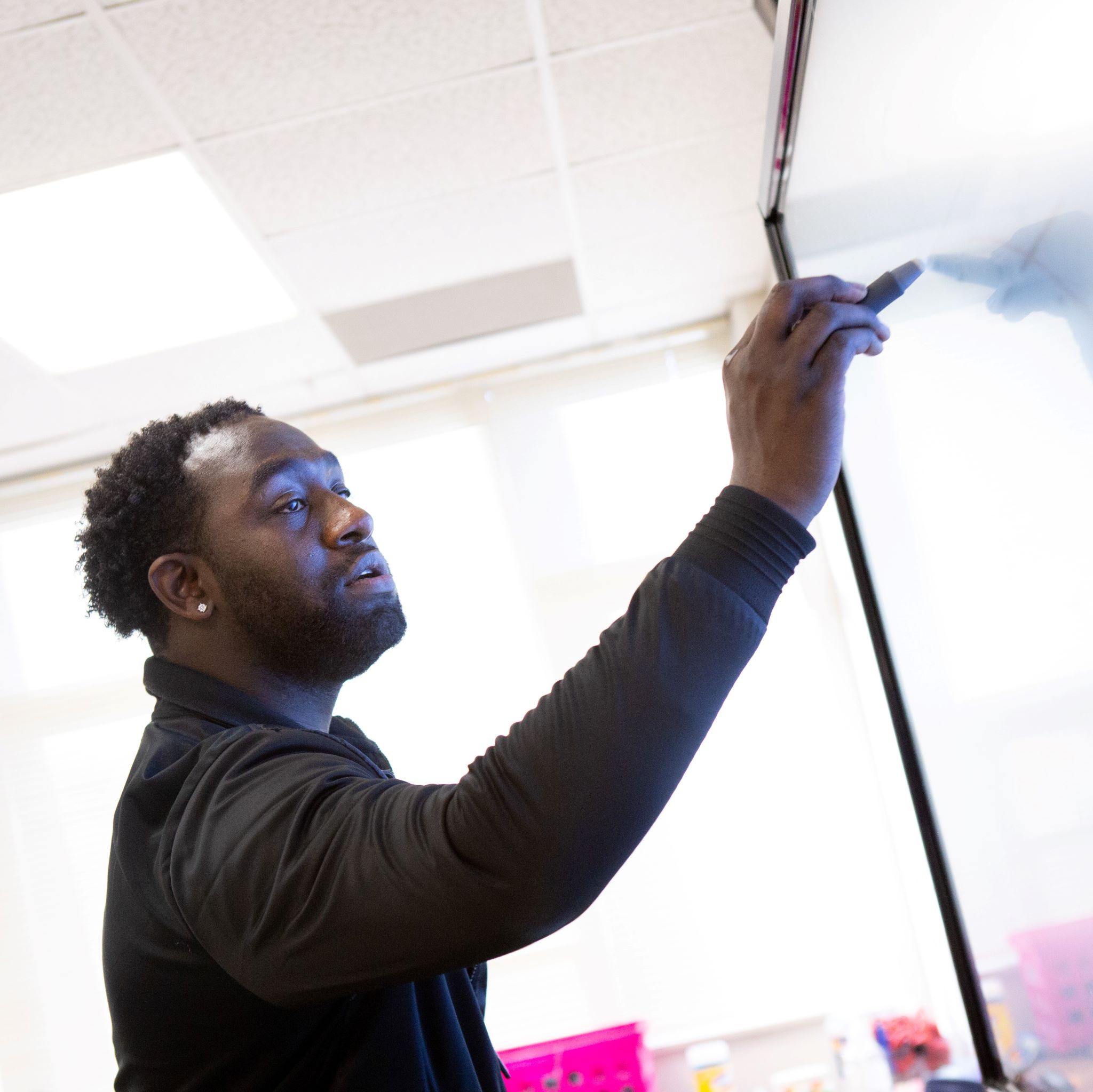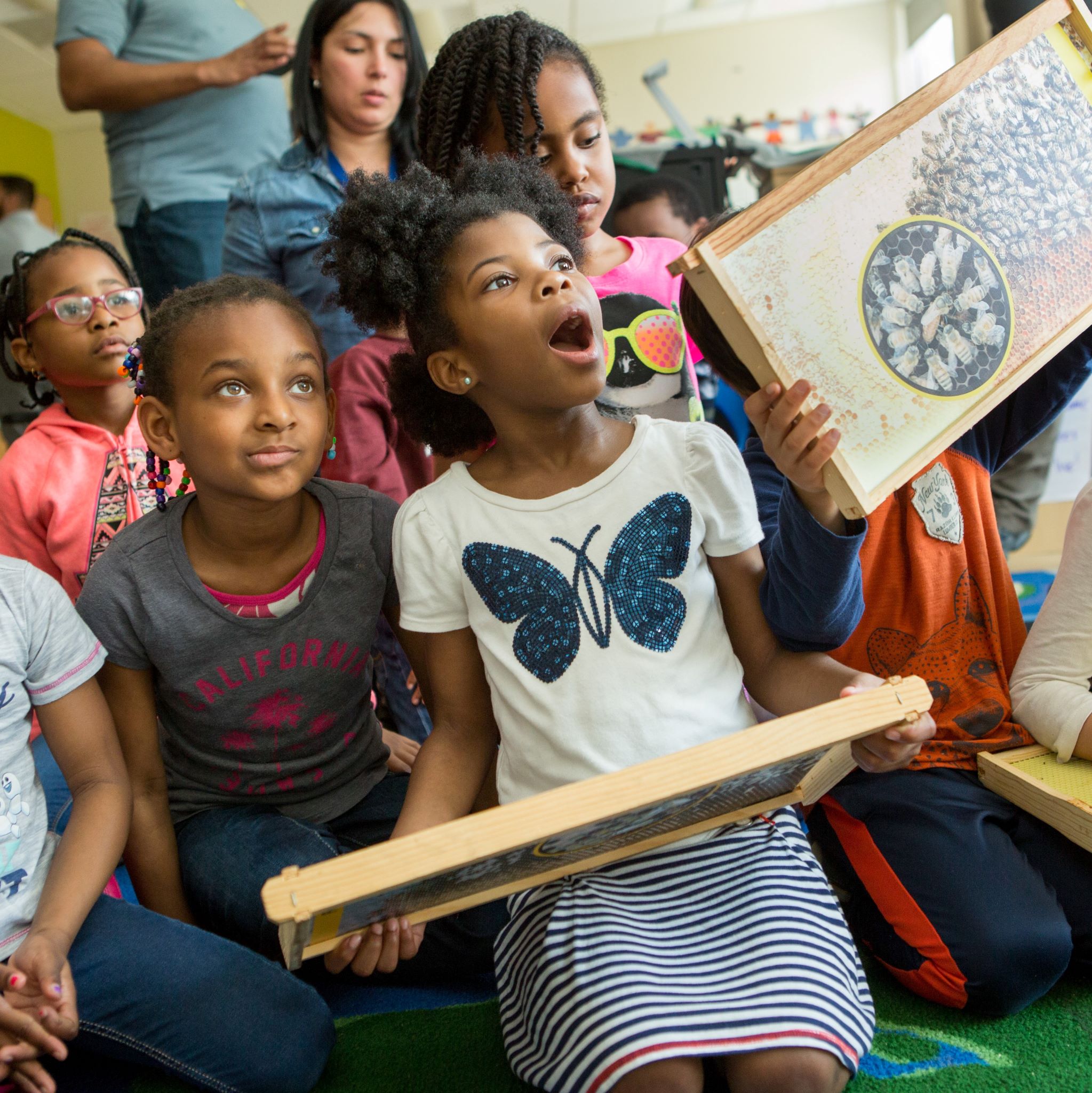In 2020 and 2021, PEBC participated in the first Denver Talent and Equity Consortium (TEC). The TEC was a year-long Promise54 cohort experience. We worked in fellowship with seven other educational organizations in the Denver-metro area. TEC provided us access to tools to assess, strengthen, and monitor our organizational systems with a deep focus on Diversity, Equity, and Inclusion (DEI).
As a result of our participation in the TEC, we were able to:
- Describe Talent and DEI strength and opportunity areas at PEBC
- Develop a multi-year DEI plan aligned to our talent and DEI goals
- Demonstrate progress on major DEI priorities
- Developing a shared understanding of DEI as foundational terms/concepts
- Creating an organizational DEI Belief Statement
- Creating an organizational stance on Teaching History Honestly
Definitions
Diversity
Variations in human experiences and perspectives
Equity
The process and outcome of everyone having what they need to be successful
Inclusion
The process of incorporating diverse ideas, identities, and perspectives
PEBC's DEI Belief Statement


What
Although systems of oppression dehumanize everyone, they disproportionately and uniquely impact historically marginalized communities.
Cultivating human dignity is all of our responsibility, and those with racial, cultural, social, and economic privilege have an undisputed responsibility to transform and share power.
(Portions adapted from National Equity Project)
Why
When we do not disrupt systems of oppression, we reinforce them. Therefore, as individuals and as an organization, we commit to disrupting inequities.
Given our relationships with teachers, schools, districts, systems, leaders, and communities, PEBC must address the impacts of inequities in our education system to fulfill our mission.
We commit to building a community of educators who work to achieve equity in their classrooms, schools, and communities – with a concerted emphasis on racial equity.

How
We contribute to collective efforts to build more equitable communities and systems by elevating awareness, improving policies, increasing pedagogical knowledge, and developing leadership capacity within PEBC, partner schools, and districts.
To this end, we:
- cultivate our cultural humility, defined by Resilient Futures as a lifelong process of self-reflection and self-critique whereby the individual not only learns about another’s culture, but one starts with an examination of their own beliefs and cultural identities
- continually build our awareness about power, privilege, and oppression through researching, listening, and questioning
- embed DEI in our strategic planning process
- disrupt white supremacy cultural norms individually, interpersonally, and institutionally
- regularly assess and reflect on our progress towards becoming an anti-racist and multicultural organization

Equity at School: Inclusive Instruction for Diverse Learners
PEBC’s 2023 publication “Equity at School: Inclusive Instruction for Diverse Learners" introduces readers to PEBC as an educator professional development organization dedicated to increasing opportunity for each and every learners. The paper contains PEBC’s Equity Indicators, a set of observable practices teachers can incorporate into their instruction to support students of color.
Taking a Stand
PEBC believes
- Each and every child deserves a great educator. We work in Colorado and across the nation to prepare outstanding new teachers, support practicing educators to become exceptional, and shape policies that foster vibrant growth and lasting student success.
- Great educators value diversity. Learning about diverse histories, races, and cultures helps students build connections across differences, and, as Rudine Sims Bishop, ‘mother of’ multicultural literature states, “...gives students mirrors that reflect their own identities as well as windows into the world to connect with others.”
- Great educators foster a sense of belonging. Students excel in school when they see themselves reflected in the classroom, have strong relationships with their teachers, and when we show students they have the vision and power to change the world.
- Great educators provide each child with what they need to reach their fullest academic and social potential. These educators center students’ cultures, family, and communities in an academically rigorous learning environment.
- Great educators are committed to preparing students to navigate a complex world made up of multiple perspectives. Learning and growth involves moments of discomfort. If we teach our children to welcome and learn from those moments, not run away from them, they will be better equipped to navigate today’s world, and thrive in the lives they choose as adults.
Numerous states have passed legislation that attempts to censor teachers’ ability to incorporate multiple perspectives in their curricula, particularly in regards to race. This legislation also attempts to limit student learning about the complexities of our nation’s past and present. Some of these attempts have been successful.
Current discussions around critical race theory (CRT), in particular, are the source of vitriolic exchanges in communities and schools across the nation. Colorado Association of School Executives (CASE) and Colorado Association of School Boards (CASB) state that critical race theory is inaccurately being used to encompass a wide range of different topics, including educational equity, social-emotional learning (SEL), cultural responsiveness, restorative practices, and broader diversity, equity and inclusion (DEI) efforts. CRT is also being inaccurately used to describe the discussion of racism in classroom instruction.
Many teachers and school leaders are exhausted, perplexed, and trying to remain grounded in what they know–that all learners deserve to see themselves reflected in the curriculum, and all learners deserve an honest education about race and racism in this country. Attempts to squash these conversations are attacks on efforts to build inclusive and equitable communities and systems.
Awareness Building
There is a long history of educators and curriculum designers intentionally and unintentionally creating school and professional learning curricula that deny, evade, subvert, or avoid analyzing complex social realities (Picower, 2021). The intentional manipulation of such curricula can take the form of omitting and falsifying history, culture, and the representation of historically marginalized communities (Picower, 2021). These curricula harm each and every learner. Ultimately, teaching such curricula communicates a lack of trust that teachers and students can navigate complexity and multiple perspectives in ways that demonstrate respect, involvement, belonging, and connection.
As Dr. David Stovall states, “History isn’t meant to console us, it’s meant to challenge us.” Students deserve to learn the full picture of U.S. history, even when it doesn’t live up to the values we believe in. The U.S. is both founded on ideals of liberty, freedom and equality, and has a history of slavery, exploitation, genocide, and exclusion. If we want our future to be different, we have to deal with the past openly and honestly. As an educational organization, we acknowledge that it takes hard work to effectively engage in these tough conversations. Nonetheless, we wholeheartedly believe this is necessary work.
Reflecting
Although we aren’t critical race scholars, we recognize the importance of reflecting on how conversations about critical race theory (CRT) are shaping broader policies on diversity, equity, and inclusion (DEI) in schools. Current conversations about CRT have also prompted us to reflect at the personal and organizational level on the role that race and bias play in our efforts to live out our commitment to DEI.
At the personal level, we need to frequently examine how our experiences shape our biases and beliefs about race and other historically marginalized groups. We need to consider the ways in which those biases and beliefs impact how we show up as PEBC community members. We must reflect on how those beliefs impact the ways we communicate, build relationships with others, make decisions, and lead.
At the organizational level, we need to consider how we address the impacts of racism and bias in our work with teachers, schools, districts, leaders, and one another.
- In what ways do we acknowledge the ways that educational inequities disproportionately impact historically marginalized communities?
- Are we holding space for multiple perspectives and complex discourse that pushes our thinking?
- How might we intentionally and/or unintentionally be protecting and prioritizing white comfort and other norms that marginalize Black, Indigenous, and People of Color (BIPOC)?
- As our partners at Promise54 ask, in what ways do we hold ourselves, our colleagues, and our leaders accountable for driving forward progress toward antiracism in our own organizations, businesses, and communities?
Taking Action
Now more than ever, contributing to collective efforts to build more equitable communities and systems is of utmost importance. To this end we:
- elevate our own awareness about historical and contemporary ways that power, privilege, and oppression influence teaching and learning;
- increase anti-bias and antiracist pedagogical knowledge with educators;
- support teachers to foster student understanding through presenting multiple perspectives, developing discourse, and deepening thinking strategies;
- improve policies that support educators, eg., policies to diversify the workforce; and
- develop leadership capacity within PEBC, partner schools, and districts that create and maintain a culture of respect, involvement, belonging, and connection.
PEBC calls on our community, allies, and partners to:
- Build their own understanding of how race impacts teaching and learning, by first questioning and interrogating their own beliefs;
- Identify and elevate the effective and equitable practices of teachers who are creating dynamic classrooms of belonging and high achievement where all students are excelling at high rates;
- Engage in deep listening and learning from teachers to understand what is helping and what might be impeding their efforts to create equitable and inclusive classrooms; and
- Model respect, involvement, belonging, and connection for students by participating in community and school board meetings in constructive and supportive ways.
Finally, we recognize that there is an overabundance of information about CRT. Many of these sources are grounded in misinformation which arises from and promotes confusion, fear, and defensiveness.
If you are looking for guidance on the current discussions about CRT and how these conversations are impacting diversity, equity, and inclusion efforts, consider reviewing the following resources that helped the PEBC team better understand the complexity of this debate:
Now & Then: Battling Over Critical Race Theory
CASE & CASB's Critical Race Theory Facts
Get involved to ensure best 21st-century education for our children
Brookings Institution - Why are states banning Critical Race Theory?
EdWeek - What is Critical Race Theory, and Why is it Under Attack?
Sources:
CASE & CASB's Critical Race Theory Facts
Top Talking Points (EJROC at NYU Metro Center)
Reading, Writing & Racism: Disrupting Whiteness in Teacher Education and in the Classroom (Picower, 2021)
Learning Forward affirms the importance of educators learning about race
